Story By Craig Nyhus, Lone Star Outdoor News
This story originally appeared in the Nov. 26 issue of LSON
The Lone Star Outdoor News Foundation, along with the Delta Waterfowl University Hunting Program, took eight students from Texas A&M-Kingsville on their first duck hunt at the historic Port Bay Hunting and Fishing Club in Rockport.
The students arrived Nov. 15 evening for a gun safety meeting and dinner. Most were quiet and nervous, but they were soaking it all in. The next morning, at 4:30 a.m., the breakfast room buzzed with energy and excitement as the groups drew for their blinds. From there, groups boarded the boat, The Launch, and in total darkness, road across Port Bay.
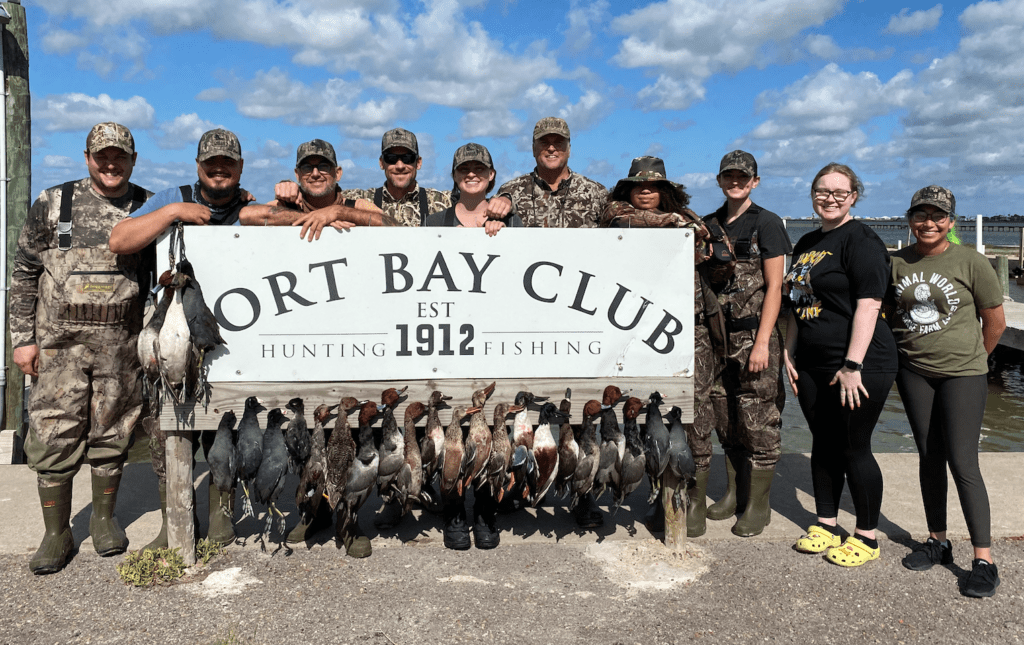
The students road, unsure of what they were getting themselves into. As each guide pulled up their skiffs to collect their groups, two-by-two they went off to their blinds.
“We sat in a blind nearby,” said LSONF Executive Director Mimi Sams. “There wasn’t a lot of action early on, but around 9 a.m. a few flocks of ducks started flying. We heard a shot, immediately followed by lots of giggles from the blind behind us. Then again, this time from the blind in front of us. This time an ‘Oh yeah’ followed. Then we watched the guide’s dog head out on a long retrieve.”
Several more shots rang out in the late morning.
“You could feel the excitement carrying over the water,” Sams said.
When the morning hunt ended, the groups boarded back on The Launch. This time, the boat was more lively.
“Everyone came back with big smiles on their faces,” Sams said. “The ducks were hung up and all the students gathered around to inspect each one and tell stories about their trips. They all helped identify each duck — a total of five different species and a few coots were harvested.”
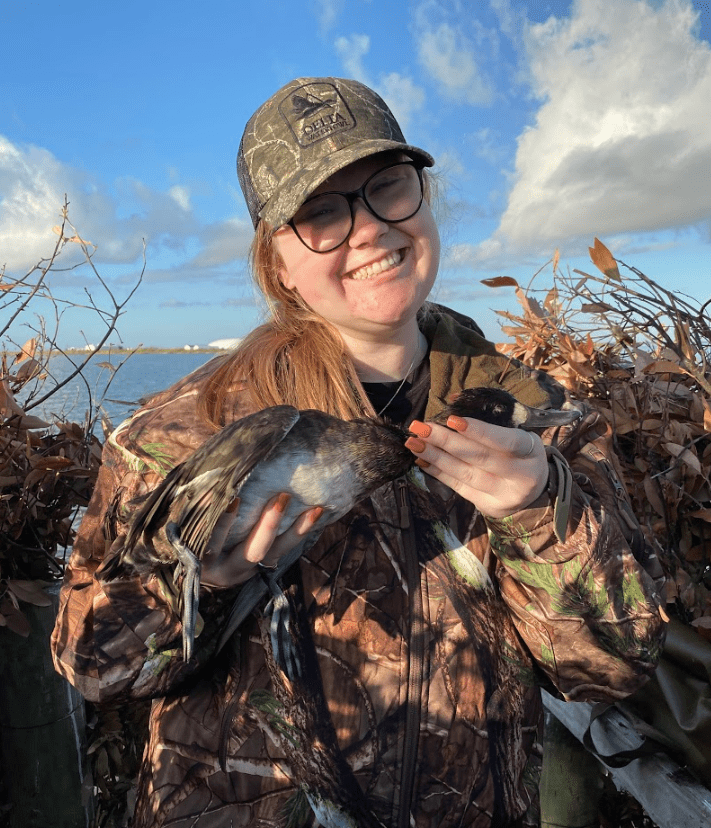
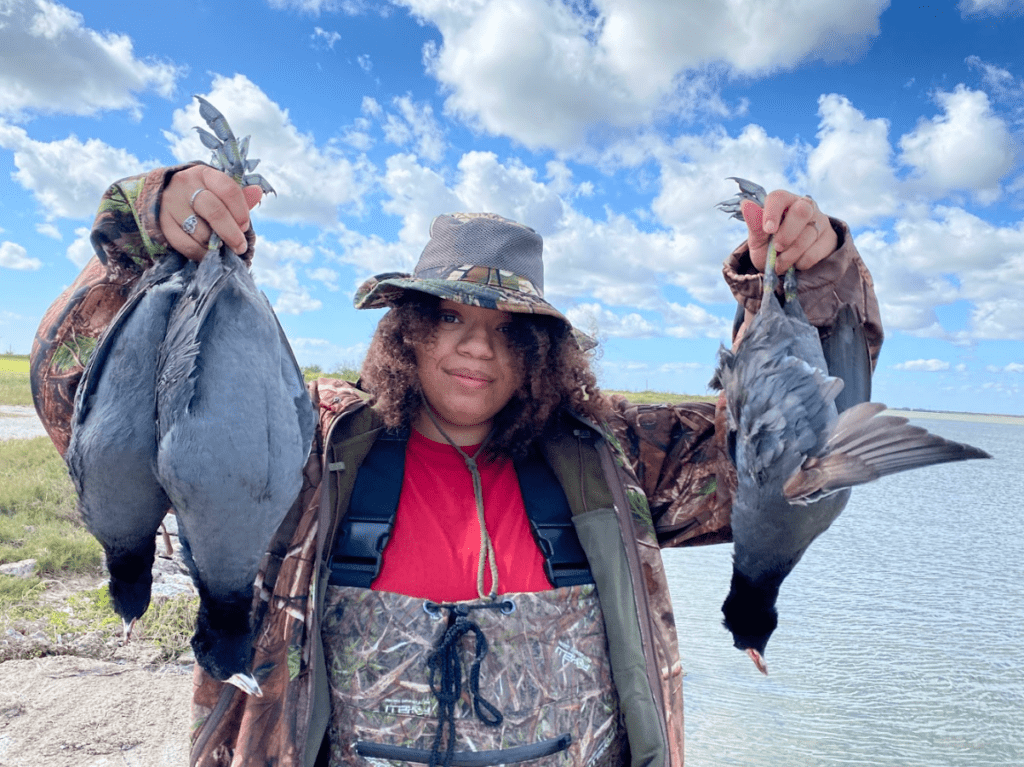
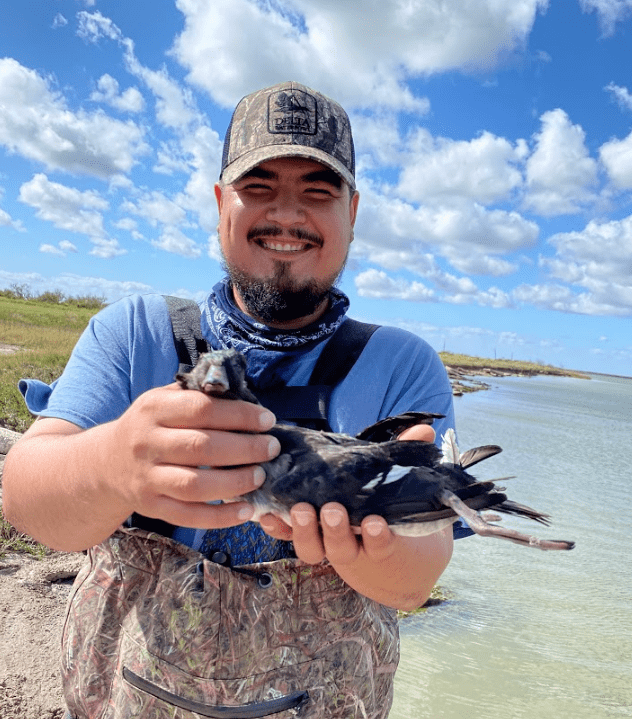
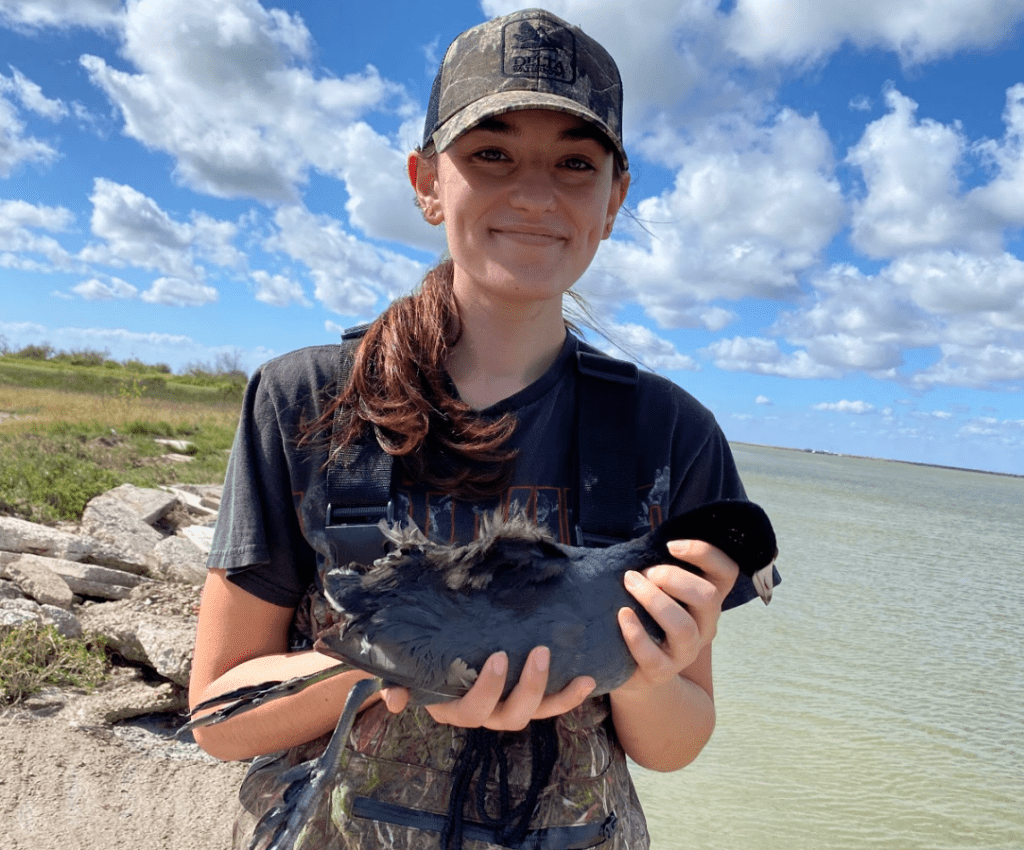
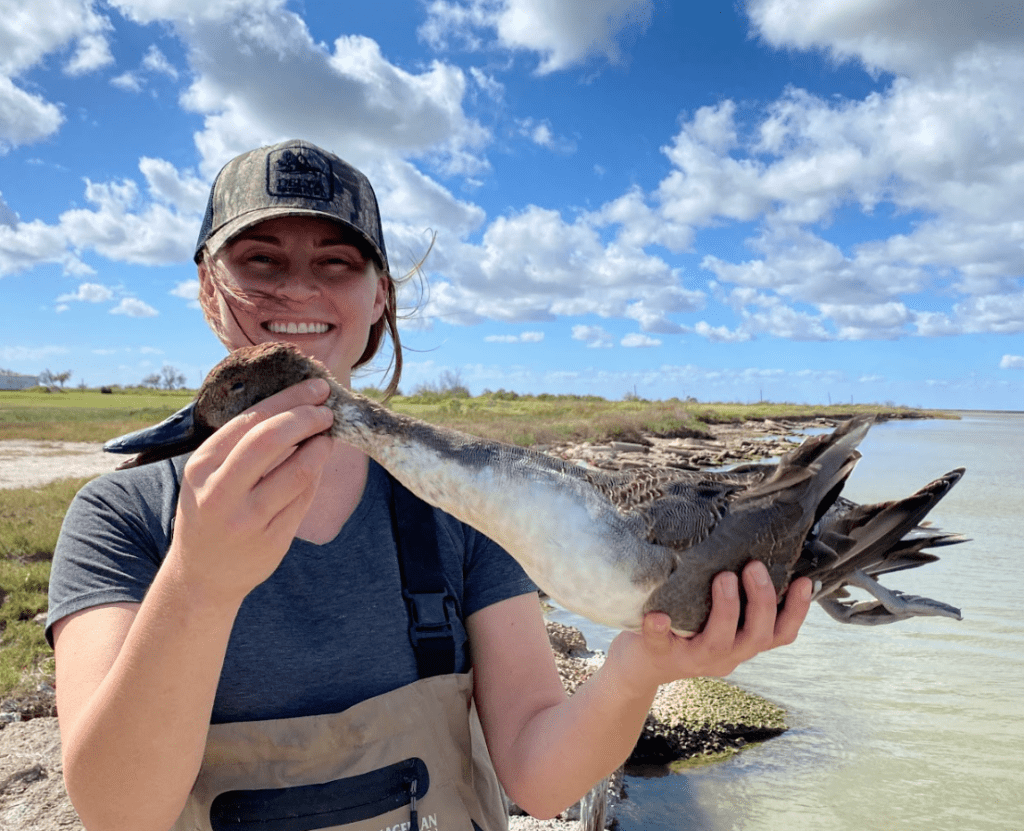
“I feel so spoiled to get to hunt here and for my first duck to be a pintail,” said Matti Bradshaw, a graduate student whose project studies pintail and the effects of different habitats on their nesting habits. “Now I need to go buy a shotgun – that’s definitely next on my list.”
Jason Loghry, a graduate student studying shorebirds, grew up in Rockport.
“Someday, when I have a real job, I would like to look at getting a membership to Port Bay Club so I can come do this all the time,” he said.
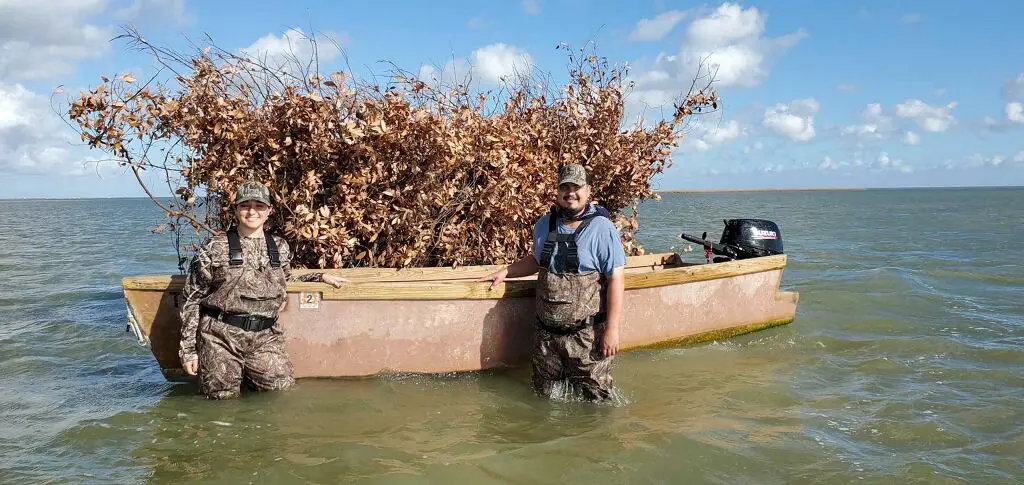
Taylor Curry is a sophomore whose dad never took her hunting growing up. She was grateful to experience this with her roommate, Jeanette Velazquez, who convinced her to come on the trip.
“I can’t wait to experience it all with my dad soon,” Curry said.
Alexander Meza is a senior and president of the Wildlife Society chapter at TAMU Kingsville.
“I’m bringing my first harvest back to get it mounted so I can always remember this,” he said.
Two hunters were not successful, but only because they weren’t presented with a shot that morning.
Takayla Hart helped clean the ducks while her guide walked her through the process. She said it was a lot harder than it looked. And two girls took home their coot’s feet and couldn’t wait to scare their friends back at school.
When they were saying goodbye, all of the students planned to get together to cook their ducks, and all said going hunt- ing again would be in their future.
Delta’s University Hunting Program be- gan in 2017 at five partner universities, and the program has grown to 39 schools for the current waterfowl season. Of the student participants, 70 percent have continued as license buying hunters. The program’s goal is to be offered at all 494 North American schools with wildlife management programs.
This season, upwards of 300 students will participate in the program.
A special thanks to Cory Henderson, Professor Bart Ballard, and Tye Green and Jeremy Griffis from Port Bay Hunting and Fishing Club.
To learn more about the Lone Star Outdoor News Foundation, visit lsonews.com/lson-foundation.


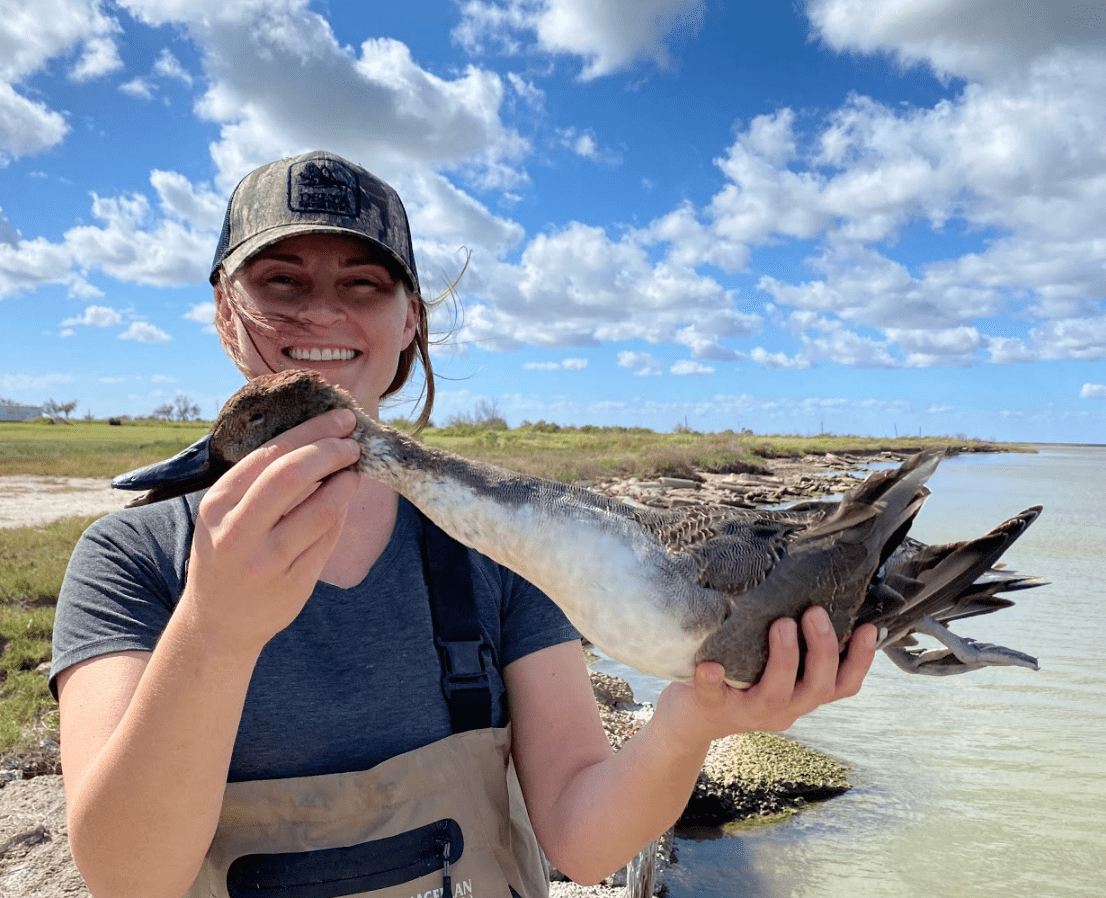
1 comment
My grandfather was a member of the Port Bay Club from the earliest days. In the 50s and 60s we used to spend the summers there. In the winter there was duck hunting in blinds just like those in the photos and I swear the skiffs are the same!
Comments are closed.